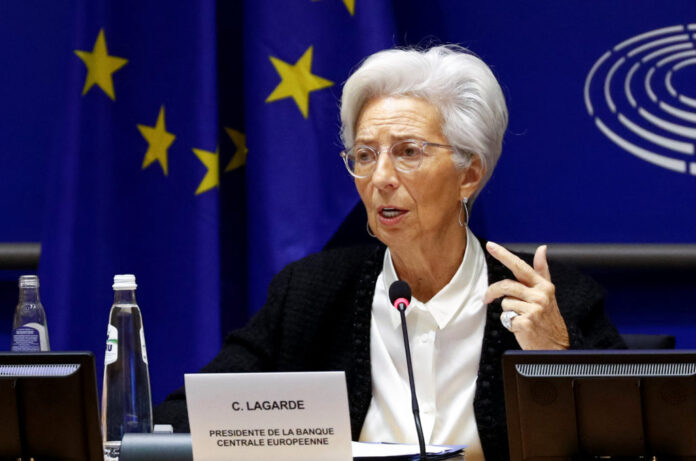European Central Bank (ECB) President Christine Lagarde said on Wednesday that U.S. tariffs could have a disinflationary impact on Europe, particularly if China redirects its surplus exports to the European market in the absence of countermeasures from the EU.
“China will have overcapacity and will want to reroute its exports somewhere, possibly to Europe, and that would have a dampening impact on prices,” Lagarde explained during a live interview with The Washington Post. However, she emphasized that the net effect on inflation remains uncertain due to multiple moving factors.
Her remarks come as U.S. President Donald Trump escalates trade tensions with China, raising tariffs to an effective rate of 145% following earlier levies imposed this year. While these measures are expected to push inflation higher in the U.S., Lagarde suggested the impact in Europe could be quite different.
At the same time, she highlighted that this potential disinflationary pressure from Chinese exports might be partially offset by domestic factors, particularly a large fiscal boost approved in Germany. The German parliament recently passed a significant spending plan aimed at defense and infrastructure upgrades, which Lagarde indicated could carry inflationary consequences.
“This would be counterbalanced in part by the likely inflationary impact of an expected German fiscal boost,” she noted.
Looking ahead, Lagarde signaled that the ECB might revisit its economic projections in light of the changing trade landscape. “I cannot exclude the possibility of revisiting the ECB’s growth forecasts when we make our next projection in June,” she said.
In a separate exchange, Lagarde was asked whether she felt reassured by reports that President Trump was stepping back from threats to dismiss Federal Reserve Chair Jerome Powell. She responded diplomatically, underscoring her respect for Powell and the importance of central bank independence.
“Whenever there has been political interference and whenever central bank chair or presidents have lost the independence, it has been followed by declining growth, increased inflation,” she cautioned.
Lagarde’s remarks come at a critical juncture for global monetary policy as central banks navigate a volatile geopolitical and trade environment while weighing domestic fiscal shifts and inflationary pressures.




